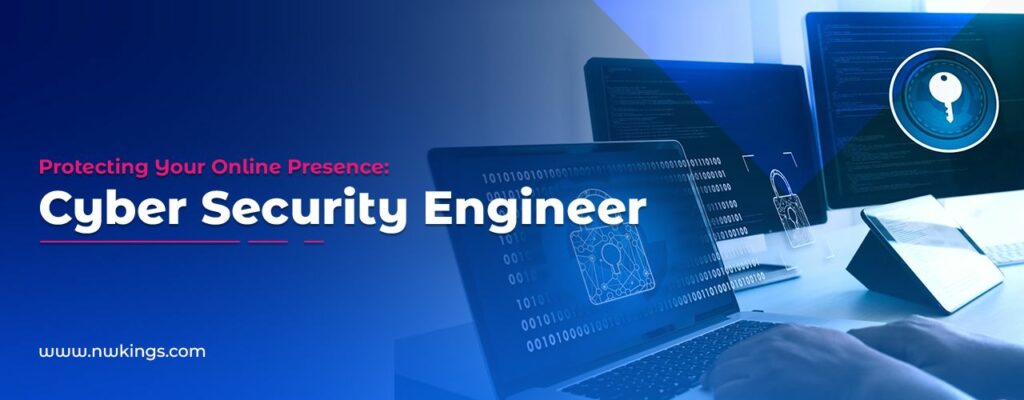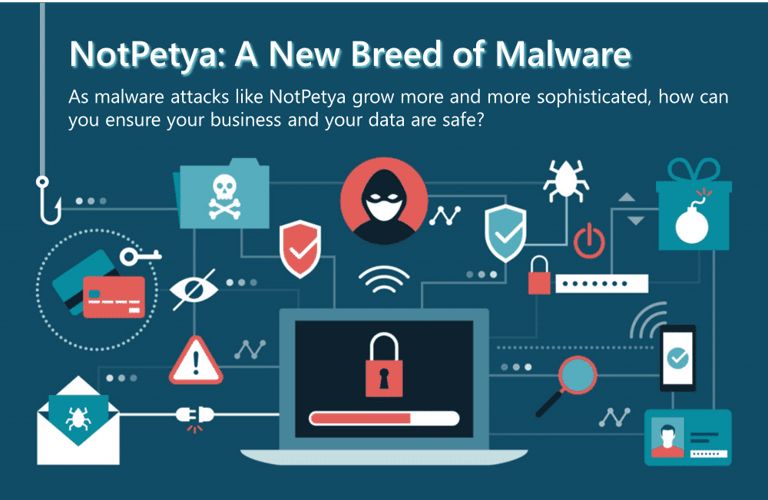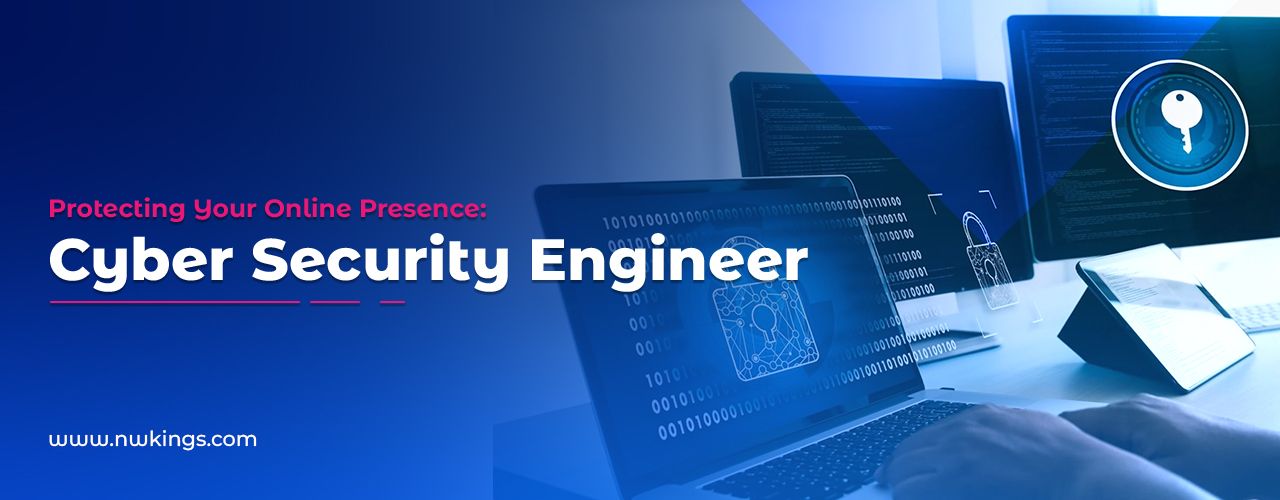
Cyber security engineers play a crucial role in combating the rising tide of cybercrime. In the digital adaptation and interconnectedness era, online privacy has become paramount. With the ever-increasing number of cyber threats and attacks, the need for cyber security engineer to safeguard our digital world has never been more crucial.
Therefore, enter the cyber security industry and become a guardian at the forefront of defending our virtual realm. Keep reading the blog till the end to get familiar with the roadmap to becoming a top-notch cyber security engineer and earning huge in the IT industry.
Who is a Cyber Security Engineer?
A cybersecurity engineer is accountable for designing, implementing, and maintaining secure computer systems, networks, and infrastructure and protecting organizations from cyber threats. They play a vital role in guarding sensitive information and maintaining integrity, confidentiality, and availability of digital assets.
What is the need for a Cyber Security Engineer in IT?
With the rise in cybercrime, IT firms hire cyber security engineers to ensure data, networks, and information security. Therefore, the expertise of cyber security engineers protects crucial information, prevents data breaches, and guarantees the integrity of networks. Their skills in vulnerability assessment, intrusion detection, and incident response are essential for maintaining a secure and resilient online environment.
“Cybersecurity is a race without a finish line.” – Howard Schmidt.
Cybercriminals have targeted not just large but small businesses too. Therefore, nobody is utterly secure in this advancing era. Here are a few examples of the world’s hazardous data breaches-
Marriott International Data Breach (2014)
Marriott Hotels breach lead hackers to steal customer names, contact information, and passport details of 5.2 million guests. It took four years for them to notice the compromise, which cost them £18.4M in fines.

WannaCry Ransomware Attack (2017)
The WannaCry ransomware attack encrypted the files of 200,000+ victims in 150 countries, causing damage of billions of dollars.

NotPetya Ransomware Attack (2017)
NotPetya ransomware attack caused estimated damage of $10 billion.

Aadhaar Data Breach (2018)
Aadhaar Data Breach leaked the details of 1.1 billion registered citizens.

What is the role of a Cyber Security Engineer in IT?
“A cybersecurity engineer’s job is to make the attacker’s job as difficult as possible.” – Bruce Schneier.
The role of a Cyber Security Engineer in IT are as follows-
- Security Infrastructure Design
Cyber Security Engineers design and implement the necessary security infrastructure, firewalls, intrusion detection systems, virtual private networks (VPNs), and other security tools and analyze the organization’s IT architecture and network to identify potential vulnerabilities and develop strategies to mitigate risks.
- Threat Detection and Prevention
Cyber Security Engineers monitor networks and systems for suspicious activities and potential security breaches using various techniques and tools to detect and respond to security incidents.
- Incident Response
Cyber Security Engineers investigate and contain the incident during a security breach working closely with incident response teams to analyze the breach.
- Security Policy Development
Cyber Security Engineers develop and enforce security policies and procedures to ensure security measures by conducting awareness training.
- Security Monitoring and Auditing
Cyber Security Engineers monitor the organization’s systems and networks by analyzing logs, conducting security audits, and implementing measures to improve the overall security technologies.
- Security Architecture Review
Cyber Security Engineers inspect and assess the security architecture before implementation with development teams to identify and mitigate potential security flaws.
- Security Incident Documentation and Reporting
Cyber Security Engineers maintain security incidents, their impact and remediation by preparing reports for improving security practices.
How does a Cyber Security Engineer safeguard tech from malicious hacking?
A Cyber Security Engineer can safeguard tech from malicious hacking by following the given steps-
- Implementing encryption protocols.
- Conducting regular security assessments and vulnerability scans.
- Developing and enforcing strict access controls and authentication mechanisms.
- Monitoring network traffic and analyzing logs for suspicious activities.
- Keeping software and systems up to date.
- Implementing robust firewalls and intrusion detection systems.
- Enforcing strong password policies.
- Utilizing multi-factor authentication.
- Employing advanced threat detection and prevention technologies.
- Continuously monitor and analyze emerging threats and adapt security measures accordingly.
What are the typical kinds of Cyberattacks?
The common Cyberattacks in IT are as follows-
- Network Intrusion
Unauthorized access or infiltration into a computer network with the intent to gain control, gather sensitive information, or disrupt normal operations is known as Network Intrusion.
- Data Breach
The unauthorized or unintentional release of sensitive or confidential information leads to potential harm or misuse of compromised data, known as a Data Breach.
- Denial of Service Attack
An intentional attempt to overwhelm a system or network with excessive traffic or requests, denying legitimate users access to the service, refers to a Denial of Service Attack.
- Password Cracking
The process of obtaining a user’s password through guessing, brute-forcing, or using advanced algorithms is known as Password Cracking.
- Phishing
A type of cyber attack where attackers impersonate legitimate entities or individuals to deceive users into revealing sensitive information, such as passwords, credit card details, or personal data, usually through fraudulent emails, messages, or websites, is called Phishing.
- Virus
A type of malicious software that self-replicates and spreads to other computer systems or files damaged by altering or corrupting data is called Virus Attack.
- UI Redress
A technique used in web-based attacks to manipulate the appearance of a website’s user interface (UI) to deceive users or gain unauthorized access to sensitive information refers to UI Redress.
- Cookie Theft
The unauthorized acquisition of web browser cookies, which store user information, by exploiting vulnerabilities or intercepting network traffic to gain unauthorized access to their accounts refers to Cookie Theft.
- DNS Spoofing
A technique where attackers manipulate the Domain Name System (DNS) resolution process to redirect users to malicious websites refers to DNS Spoofing.
- Malware-Injection Devices
Physical devices or compromised systems used by attackers to introduce malware into target networks or devices by exploiting vulnerabilities or weaknesses in the system’s security are Malware-Injection Devices.
- SQL Injection Attack
A type of attack that exploits security vulnerabilities in a web application’s database layer by injecting malicious SQL code, allowing attackers to access, modify, or delete data, refers to SQL Injection Attack.
- Cross-Site Scripting (XSS)
A web-based attack where malicious code gets injected into a trusted website, which executes the code in the victim’s browser, enabling the attacker to steal information, manipulate website content, or launch further attacks, is known as Cross-Site Scripting.
- Session Hijacking
The unauthorized takeover of an active user session by an attacker by intercepting or stealing session identifiers to gain unauthorized access or perform malicious actions on their behalf refers to Session Hijacking.
- Credential Reuse
Using the same username and password combination across multiple accounts or services poses a security risk referring to Credential Reuse.
What are the kinds of hackers in IT?
The kinds of malicious hackers in IT are as follows-
- White Hat Hackers
White Hat Hackers use their hacking skills for legal and ethical purposes to help organizations identify and fix security vulnerabilities, ensuring systems and data security.
- Black Hat Hackers
Black Hat Hackers engage in illegal and malicious activities and exploit security vulnerabilities for personal gains, such as stealing sensitive information, causing damage, or engaging in cybercrime.
- Gray Hat Hackers
Gray Hat Hackers fall somewhere between White Hat and Black Hat Hackers since they hack systems without authorization but without malicious intent. They might notify the organization about the vulnerabilities they discover but may not always follow legal procedures.
- Script Kiddies
Script kiddies lack advanced hacking skills and knowledge and rely on pre-existing hacking tools or scripts to launch attacks, often without fully understanding the underlying mechanisms.
- Green Hat Hackers
Green Hat Hackers are beginner or novice hackers learning the hacking criteria in IT.
- Blue Hat Hackers
Blue Hat Hackers are individuals who are not affiliated with an organization but get invited by a company to test their security measures.
- Red Hat Hackers
Red Hat Hackers get often associated with Linux operating systems, specifically the Red Hat Enterprise Linux distribution.
- State/Nation-Sponsored Hackers
State/Nation-Sponsored Hackers get employed by governments or state agencies to conduct cyber espionage, gather intelligence, or launch cyber attacks on other nations or targets.
- Hacktivist
Hacktivists hack into systems for political or ideological reasons and aim to raise awareness, promote a particular cause, or retaliate against perceived injustice.
- Malicious Insider or Whistleblower
Malicious Insider or Whistleblower includes individuals who have authorized access to a system but abuse that access for personal gain or to expose wrongdoing within an organization. Whistleblowers are individuals who disclose sensitive information in the public interest.
What is the scope of a Cyber Security Engineer in IT?
A Cyber Security Engineer safeguards systems, networks, and data from malicious threats and attacks by implementing security measures, monitoring for vulnerabilities, conducting risk assessments, developing incident response plans, and ensuring compliance with industry standards and regulations.
Since everyone requires cybersecurity, the demand for cyber security engineers is at its peak. Thus, the scope of the Cyber Security Engineer in IT is very bright and promising.
How can I become a Cyber Security Engineer in IT?
To become a Cyber Security Engineer in IT, you need to follow the given steps-
- Obtain a Bachelor’s Degree
- Gain Knowledge and Skills
- Acquire Relevant Certifications
- Gain Practical Experience
- Build a Strong Foundation in IT
- Develop Specialized Skills
- Stay Updated and Engage in the Community
- Network and Seek Mentorship
- Prepare for Job Interviews
- Start Your Job Search
What are the prerequisites to becoming a Cyber Security Engineer in IT?
The prerequisites to becoming a Cyber Security Engineer in IT are as follows-
- Bachelor’s degree in computer science, information technology, or a related field
- Basic networking knowledge
- Fundamental programming skills to help you analyze and develop security solutions.
- Familiarity with operating systems
- Hands-on industry experience
- Understanding of security tools
- Analytical and problem-solving skills
What is the roadmap to becoming a Cyber Security Engineer in IT?
The roadmap to becoming a Cyber Security Engineer in IT is as follows-
Linux ➜ MCSA ➜ CCNA ➜ CEH ➜ CompTIA PenTest+ ➜ CompTIA CySA+ ➜ CISSP
By following the given roadmap, you can acquire basic to advance skills and become an efficient Cyber Security Engineer in IT.
What courses must I opt for to become a Cyber Security expert?
The courses you must opt for to become a Cyber Security expert are as follows-
- CEH (v12)
The Certified Ethical Hacker (CEH) course provides hands-on training in understanding and implementing the tools and techniques to identify and fix vulnerabilities in computer systems.
- CISSP
The Certified Information Systems Security Professional (CISSP) course equips professionals with the knowledge and skills to design, implement, and manage an organization’s cybersecurity program, covering risk management, cryptography, and network security.
- CompTIA PenTest+
The CompTIA PenTest+ course teaches the skills to identify and exploit vulnerabilities in network infrastructure and applications, preparing individuals for a career in penetration testing and ethical hacking.
- CompTIA Security+
The CompTIA Security+ course offers a broad understanding of network security concepts, covering network infrastructure, cryptography, and access control, enabling individuals to secure network environments and respond to security incidents effectively.
- CompTIA CySA+
The CompTIA Cybersecurity Analyst+ (CySA+) course stresses behavioral analytics and data analysis to detect and prevent cybersecurity threats, providing professionals with the skills to secure and protect organizational systems and networks.
- RedHat Linux
The RedHat Linux course provides comprehensive training on the Red Hat Linux operating system, covering system administration, network configuration, security, and shell scripting, to manage and maintain Linux-based systems.
- MCSA – Windows Server
The MCSA – Windows Server course offers in-depth instruction on the Microsoft Windows Server platform, comprising installation, configuration, storage management, networking, and Active Directory administration to manage Windows Server environments.
- Palo Alto Firewall
The Palo Alto Firewall course focuses on configuring and managing Palo Alto Networks firewalls, equipping individuals with the knowledge to effectively secure network traffic, prevent threats, and implement advanced security features.
- CheckPoint Firewall
The CheckPoint Firewall course covers the installation, configuration, and management of CheckPoint firewalls, enabling individuals to design and implement secure network infrastructures and protect against cyber threats.
- Fortigate Firewall
The Fortigate Firewall course provides comprehensive training on Fortinet’s Fortigate firewalls, covering firewall policies, VPN configuration, and advanced threat protection, empowering individuals to secure networks and mitigate cyber risks.
- ASA & FTD Firewall
The ASA & FTD Firewall course focuses on Cisco Adaptive Security Appliance (ASA) and Firepower Threat Defense (FTD) firewalls, offering practical skills in firewall deployment, configuration, and troubleshooting to protect networks from unauthorized access and cyber threats.
- Sophos XG
The Sophos XG course covers the configuration and management of Sophos XG firewalls, teaching individuals how to secure networks, control user access, and defend against evolving cyber threats using advanced security features and technologies.
Where should I enroll to learn the top Cyber Security courses in IT?
Though countless ed-tech platforms provide IT course training, if you strive to enroll in top-notch Cyber Security programs, Network Kings is the best resort. Therefore, secure your seat today to upscale in IT and earn huge as a Cyber Security Engineer.
Why should I choose Network Kings for the Cyber Security training?
You must choose Network Kings for the Cyber Security course training since it provides the following benefits-
- 24/7 access to the virtual labs with zero downtime.
- Career guidance through career counsellors.
- Economical fees for all the certifications.
- Live doubt-clearance sessions with industry experts.
- Tips and tricks to crack interviews and exams.
- Live interactive classes with trainers.
- Certificate of completion after each course.
What skills will I learn with the Cyber Security training at Network Kings?
You will learn the given skills with the Cyber Security training at Network Kings-
- Understanding the Threat Landscape
- Designing and Implementing Secure Systems
- Vulnerability Assessment and Penetration Testing
- Incident Response and Disaster Recovery
- Secure Network Architecture and Infrastructure
- Cryptography and Encryption Techniques
- Security Auditing and Compliance
- Cyber Security Policies and Best Practices
- Ethical Hacking and Offensive Security
- Collaboration and Communication Skills
What are the exam details for each Cyber Security course at Network Kings?
The exam details for each Cyber Security course at Network Kings are as follows-
CEH (V12)
Exam Name Certified Ethical Hacker (312-50)
Exam Cost USD 100
Exam Format Multiple Choice
Total Questions 125 Questions
Passing Score 60% to 85%
Exam Duration 4 Hours
Languages English
Testing Center Pearson Vue
CISSP Training
Exam Name ISC2 Certified Information Systems Security Professional
Exam Code CISSP
Exam Cost USD 749
Exam Duration 4 Hours
Number of Questions 125-175
Exam Format MCQs
Passing Marks 700/1000 points
Exam Language English
Testing Center (ISC)^2 authorized PPC, PVTC Select Pearson VUE
CompTIA PenTest+
Exam Code PT0-002
Exam Code 392 USD
Number of Questions Maximum of 85 questions
Type of Questions Performance-based and multiple choice
Length of Test 165 minutes
Passing Score 750
Languages English, Japanese, Portuguese and Thai
Testing Provider Pearson VUE
CompTIA Security+
Exam Code SY0-601
Number of Questions Maximum of 90 questions
Type of Questions Multiple choice and performance-based
Length of Test 90 minutes
Passing Score 750
Exam Cost USD 392
Testing Provider Pearson VUE
Languages English, Japanese, Vietnamese, Thai, Portuguese
CompTIA CySA+
Exam Name CompTIA CySA+
Exam Code CS0-003
Exam Cost USD 392
Exam Format Multiple-choice and performance-based questions
Total Questions 85 Questions
Passing Score 750/900
Exam Duration 165 Minutes
Languages English, Japanese, Portuguese, and Spanish
Testing Center Pearson VUE
Palo Alto Firewall
Exam Code PCNSE PAN-OS 10
Exam Level Associate
Exam Cost USD 175
Exam Duration 80 Minutes
Exam Format MCQs & Multiple Response
Total Questions 75 Questions
Passing Score Variable (70-80 / 100 Approx.)
Exam Code PCNSA PAN-0S 10
Exam Level Associate
Exam Cost USD 155
Exam Duration 80 Minutes
Exam Format MCQs & Multiple Response
Total Questions 50-60 Questions
Passing Score Variable (70-80 / 100 Approx.)
CheckPoint Firewall
Exam Code CCSA 156-215.81
Exam Level Associate
Exam Cost USD 250
Exam Duration 90 Minutes
Exam Format MCQs & Multiple Response
Total Questions 90 Questions
Passing Score 70%
Exam Code 156-315.81
Exam Level Professional
Exam Cost USD 250
Exam Duration 90 Minutes
Exam Format MCQs & Multiple Response
Total Questions 100
Passing Score 70%
FortiGate Firewall
Exam Code FORTINET NSE-4
Exam Level Associate
Exam Cost USD 400
Exam Duration 105 Minutes
Exam Format MCQs & Multiple Response
Total Questions 60 Questions
Passing Score 60%
Exam Name Fortinet NSE 7—Enterprise Firewall 7.0
Exam Series NSE7_EFW-7.0
Exam Duration 60 minutes
Exam Format Multiple-choice Questions
Total Questions 35
Language English and Japanese
Version FortiOS 7.0.1, FortiManager 7.0.1, FortiAnalyzer 7.0.1
Exam Name Fortinet NSE 7—SD-WAN 7.0
Exam Series NSE7_SDW-7.0
Time Allowed 60 minutes
Exam Questions 35 multiple-choice questions
Language English
Product Version FortiOS 7.0.3, FortiManager 7.0.2, FortiAnalyzer 7.0.2
ASA & FTD Firewall
Exam Number 642-618
Exam Cost USD 800
Exam Duration Approximately 90 minutes
Language English
Register for Exam Pearson VUE
Types of Questions Multiple-choice Questions
Number of Questions 60-70 questions
Passing Score 769
Sophos XG Firewall
Exam Name Sophos XG Firewall
Exam Code v18
Exam Cost USD 1450
Exam Format Multiple-choice questions
Total Questions 70 questions
Passing Score 75%
Exam Duration 90 minutes
Languages English, Japanese
Testing Center Pearson VUE
What are the job opportunities after Cyber Security course training?
The job opportunities after Cyber Security course training are as follows-
- Security Analyst
- Ethical Hacker
- Security Consultant
- Incident Responder
- Security Engineer
- Penetration Tester
- Security Architect
- Cryptographer
- Forensic Analyst
- Security Operations Center (SOC) Analyst
- Threat Intelligence Analyst
- Security Auditor
- Network Security Engineer
- Application Security Engineer
- Security Manager
- Identity and Access Management (IAM) Specialist
- Security Operations Manager
- Data Privacy Officer
- Security Awareness and Training Specialist
- Chief Information Security Officer (CISO)
What are the salary aspects after earning the Cyber Security certification in IT?
The salary aspects after earning the Cyber Security certification in IT are as follows-
- United States: USD 93,000 – USD 154,000 per year
- United Kingdom: GBP 40,000 – GBP 70,000 per year
- Canada: CAD 70,000 – CAD 110,000 per year
- Germany: EUR 50,000 – EUR 80,000 per year
- Australia: AUD 81,000 – AUD 130,500 per year
- France: EUR 40,000 – EUR 70,000 per year
- Japan: JPY 5,500,000 – JPY 9,000,000 per year
- Singapore: SGD 60,000 – SGD 100,000 per year
- India: INR 810,000 – INR 1,505,000 per year
- United Arab Emirates: AED 150,000 – AED 300,000 per year
- Brazil: BRL 70,000 – BRL 120,000 per year
- South Africa: ZAR 440,000 – ZAR 780,000 per year
- Sweden: SEK 400,000 – SEK 700,000 per year
- Netherlands: EUR 50,000 – EUR 90,000 per year
- China: CNY 150,000 – CNY 300,000 per year
Wrapping Up!
Making a career in IT never disappoints since continuous growth gets witnessed in the domain. The advancement can land you diverse high-paying job roles to excel in IT and upgrade your Cyber Security skills with flying colours. Hence, opt for the best Cyber Security certification courses and shape your career.
For further queries, feel free to write to us!
Happy Learning!


